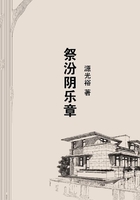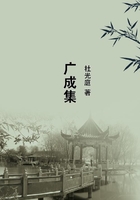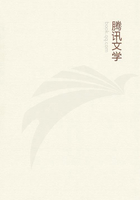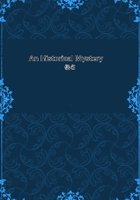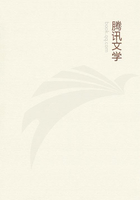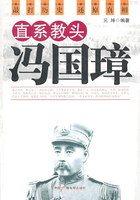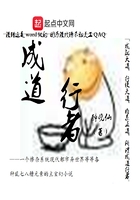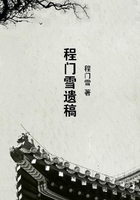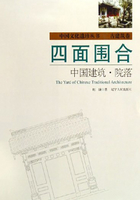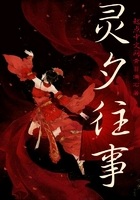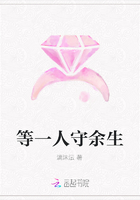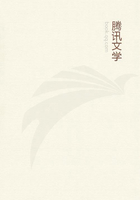Human beings--except his daughter--did not interest Hallowell; and his feeling for her was somewhat in the nature of an abstraction. Norman, on the other hand, was intensely interested in human beings; indeed, he was interested in little else. He was always thrusting through surfaces, probing into minds and souls. He sought thoroughly to understand the living machines he used in furthering his ambitions and desires. So it was not long before he learned much about old Newton Hallowell--and began to admire him--and with a man of Norman's temperament to admire is to like.
He had assumed at the outset that the scientist was more or less the crank. He had not talked with him many times before he discovered that, far from being in any respect a crank, he was a most able and well-balanced mentality--a genius. The day came when, Dorothy not having returned from a shopping tour, he lingered in the laboratory talking with the father, or, rather, listening while the man of great ideas unfolded to him conceptions of the world that set his imagination to soaring.
Most of us see but dimly beyond the ends of our noses, and visualize what lies within our range of sight most imperfectly. We know little about ourselves, less about others. We fancy that the world and the human race always have been about as they now are, and always will be. History reads to us like a fairy tale, to which we give conventional acceptance as truth. As to the future, we can conceive nothing but the continuation of just what we see about us in the present. Norman, practical man though he was, living in and for the present, had yet an imagination. He thought Hallowell a kind of fool for thinking only of the future and working only for it--but he soon came to think him n divine fool. And through Hallowell's spectacles he was charmed for many an hour with visions of the world that is to be when, in the slow but steady processes of evolution, the human race will become intelligent, will conquer the universe with the weapons of science and will make it over.
When he first stated his projects to Norman, the young man had difficulty in restraining his amusement.
A new idea, in any line of thought with which we are not familiar, always strikes us as ridiculous. Norman had been educated in the ignorant conventional way still in high repute among the vulgar and among those whose chief delight is to make the vulgar gape in awe. He therefore had no science, that is, no knowledge--outside his profession--but only what is called learning, though tommyrot would be a fitter name for it. He had only the most meager acquaintance with that great fundamental of a sound and sane education, embryology. He knew nothing of what science had already done to destroy all the still current notions about the mystery of life and birth. He still laughed, as at a clever bit of legerdemain, when Hallowell showed him how far science had progressed toward mastery of the life of the lower forms of existence--how those "worms" could be artificially created, could be aged, made young again, made diseased and decrepit, restored to perfect health, could be swung back and forth or sideways or sinuously along the span of existence--could even be killed and brought back to vigor.
"We've been at this sort of thing only a few years," said Hallowell. "I rather think it will not be many years now before we shall not even need the initial germ of life to enable us to create but can do it by pure chemical means, just as a taper is lighted by holding a match to it."
Norman ceased to think of sleight-of-hand.
"Life," continued the juggler, transformed now into practical man, leader of men, "life has been demonstrated to be simply one of the forms of energy, or one of the consequences of energy. The final discovery is scientifically not far away. Then--" His eyes lighted up.
"Then what?" asked Norman.
"Then immortality--in the body. Eternal youth and health. A body that is renewable much as any of our inanimate machines of the factory is renewable.
Why not? So far as we know, no living thing ever dies except by violence. Disease--old age--they are quite as much violence as the knife and the bullet. What science can now do with these `worms,' as my daughter calls them--that it will be able to do with the higher organisms."
"And the world would soon be jammed to the last acre," objected Norman.
Hallowell shrugged his shoulders. "Not at all.
There will be no necessity to create new people, except to take the place of those who may be accidentally obliterated."
"But the world is dying--the earth, itself, I mean."
"True. But science may learn how to arrest that cooling process--or to adapt man to it. Or, it may be that when the world ceases to be inhabitable we shall have learned how to cross the star spaces, as I think I've suggested before. Then--we should simply find a planet in its youth somewhere, and migrate to it, as a man now moves to a new house when the old ceases to please him."
"That is a long flight of the fancy," said Norman.
"Long--but no stronger than the telegraph or the telephone. The trouble with us is that we have been long stupefied by the ignorant theological ideas of the universe--ideas that have come down to us from the childhood of the race. We haven't got used to the new era--the scientific era. And that is natural. Why, until less than three generations ago there was really no such thing as science."
"I hadn't thought of that," admitted Norman.
"We certainly have got on very fast in those three generations."
"Rather fast. Not so fast, however, as we shall in the next three. Science--chemistry--is going speedily to change all the conditions of life because it will turn topsy-turvy all the ways of producing things--food, clothing, shelter. Less than two generations ago men lived much as they had for thousands of years. But it's very different to-day. It will be inconceivably different to-morrow."
Norman could not get these ideas out of his brain.

